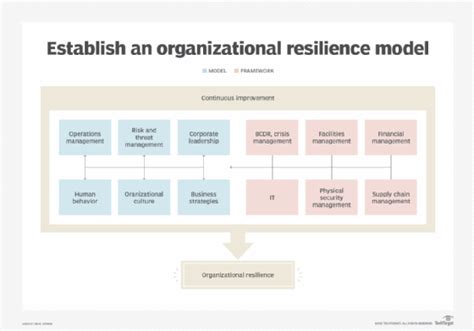The Importance of Business Continuity Planning
In today’s rapidly evolving business landscape, organizations face unprecedented risks and uncertainties that can disrupt operations, jeopardize revenue, and damage reputation. Business continuity planning (BCP) has emerged as a crucial strategy to prepare for and mitigate these risks, ensuring that organizations can continue to operate effectively during and after disruptive events.

According to a study by the Disaster Recovery Institute International (DRII), 93% of organizations that experience a major disaster recover within one year if they have a BCP in place, compared to only 63% of those without a plan.
The Role of Business Continuity Planners
Business continuity planners are the architects of organizational resilience. They are responsible for:
- Assessing risks and vulnerabilities
- Developing and implementing business continuity plans
- Training and exercising staff on these plans
- Maintaining and updating plans to reflect changing circumstances
These professionals play a vital role in ensuring that organizations are prepared to respond to a wide range of disruptive events, including:
- Natural disasters (e.g., hurricanes, earthquakes, floods)
- Cyberattacks
- Supply chain disruptions
- Workforce shortages
- Financial crises
Best Practices for Business Continuity Planning
Effective BCP requires a comprehensive approach that considers all aspects of an organization’s operations. Best practices include:
- Risk Assessment: Conduct thorough risk assessments to identify potential threats and their impact on critical business processes.
- Plan Development: Create detailed plans outlining steps to mitigate risks, maintain operations during disruptions, and recover after the event.
- Staff Training and Exercise: Train staff on their roles and responsibilities in the event of a disruption. Conduct regular exercises to test and improve plans.
- Plan Maintenance: Regularly review and update plans to reflect changes in the organization or external environment.
Industry Trends and Innovations
The field of business continuity is constantly evolving, driven by advancements in technology and changing risk landscapes. Some notable trends include:
- Cloud Computing: Cloud-based solutions provide remote access to data and applications, enhancing resilience during disruptions.
- Artificial Intelligence (AI): AI algorithms can automate risk assessments, plan development, and response protocols.
- Cyber Resilience: With increasing cyber threats, organizations are investing heavily in cybersecurity measures and incident response plans.
- Hybrid Workforce: The rise of remote and hybrid work arrangements necessitates new approaches to business continuity planning.
The Future of Business Continuity Planning
Business continuity planning will continue to play a critical role in organizational resilience. As businesses face new and emerging risks, planners must adopt innovative approaches and leverage emerging technologies to enhance their plans.
Conclusion
Business continuity planners are the unsung heroes of organizational resilience. They work tirelessly to prepare their organizations for the unexpected, ensuring that operations can continue during and after disruptive events. By embracing best practices and leveraging industry innovations, businesses can enhance their resilience and protect their critical assets.
